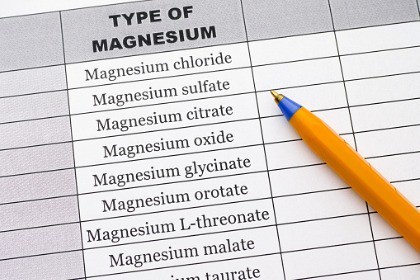Understanding Teenage Anxiety
The teenage years are a phase of transition, marked by significant physical, psychological, and social changes. Coupled with the pressures of academic achievement, societal expectations, and the advent of social media, these factors can often contribute to heightened anxiety levels. The competitive nature of our society, the constant comparison with peers, and the fear of not meeting expectations can create an environment ripe for anxiety disorders. Anxiety is a natural and often healthy emotion, characterized by feelings of tension, worried thoughts, and physical changes such as increased heart rate or sweating. It’s the body’s response to perceived threats, serving as a survival mechanism that prepares us for potential danger. However, when these feelings become persistent, overwhelming, and interfere with daily life, they evolve into a medical disorder known as anxiety disorder. Anxiety disorders can manifest in various ways, including generalized anxiety disorder, social anxiety, panic disorder, and specific phobias. These conditions can be debilitating, often leading to avoidance behaviors, sleep problems, and difficulties in concentration. Teens facing this complex condition may also experience physical symptoms, such as fatigue, headaches, and muscle tension.The Science Behind Anxiety in Teenagers
The science behind anxiety in teenagers is multifaceted and complex. During adolescence, the brain undergoes significant development and changes, particularly in areas responsible for cognitive and emotional processes. Notably, the prefrontal cortex, which governs decision-making and impulse control, and the amygdala, a key player in processing emotional responses, continue to mature. This neurodevelopmental imbalance often leads to heightened emotional reactivity and decreased regulatory control, making teenagers more susceptible to anxiety. Hormonal changes that occur during puberty can also contribute to increased anxiety. The surge in hormones can affect the brain’s neurotransmitters, leading to changes in mood and anxiety levels. Furthermore, research suggests that teenagers experience a natural shift in their circadian rhythms, causing them to prefer later bedtimes and wake-up times. This change, coupled with early school start times and increased responsibilities, can lead to sleep deprivation—a known contributor to anxiety. Genetic factors also play a critical role in anxiety disorders. Teens who have a family history of anxiety disorders are more likely to develop these disorders themselves, suggesting a genetic predisposition. However, environmental factors and learned behavior often interact with this predisposition, shaping how it manifests. Finally, the role of stress can’t be overlooked. Heightened academic pressure, social expectations, and the presence of adversities or traumatic events can expose teenagers to chronic stress, a significant trigger for anxiety disorders.Common Symptoms and Signs of Anxiety in Teens
Recognizing anxiety in teenagers can be challenging, as the signs may often be misconstrued as typical adolescent behavior. However, there are several common symptoms and signs to look out for.- Physical Symptoms: Teens might experience headaches, stomachaches, chest pain, heart palpitations, shortness of breath, trembling, or feeling faint. They may also have difficulty sleeping or show signs of fatigue.
- Emotional Symptoms: Persistent feelings of worry, fear, or unease that seem out of proportion to the situation at hand could indicate anxiety. They may also display excessive fear or worry about past or future events.
- Behavioral Changes: Changes in behavior can be a telltale sign of anxiety. This could involve avoiding situations that cause anxiety, such as social events or school, displaying compulsive behaviors, or experiencing outbursts of anger.
- Cognitive Difficulties: Teens with anxiety might have trouble focusing or concentrating on tasks. They may seem preoccupied or lost in their thoughts and may display forgetfulness.
- Changes in Eating Habits: Anxiety can often lead to changes in eating habits, like eating too much or too little.
- Restlessness or Irritability: Teens suffering from anxiety often appear restless or irritable. They may seem ‘on edge’ or have difficulty sitting still.
The Role of Magnesium in the Human Body
Magnesium is an essential mineral, playing a pivotal role in over 300 enzymatic reactions within the human body. It’s involved in a variety of fundamental biological activities, including protein synthesis, muscle and nerve function, blood glucose control, and blood pressure regulation. Magnesium is also necessary for energy production, contributing to the conversion of food into energy. On the structural level, it is a component of the skeleton and cellular membranes. Despite the importance of magnesium, many individuals don’t get enough of this essential mineral in their diet. This deficiency can cause numerous symptoms and health problems, emphasizing the importance of maintaining adequate magnesium levels. Many have turned to nutritional and herbal supplements, taking magnesium supplements, as a means of regulating their magnesium intake.Magnesium: An Essential Mineral
Magnesium is crucial for several reasons. First, it is a key player in the process of energy production. It aids in the conversion of food into energy, providing the cells with the fuel they need to function optimally. Additionally, it’s vital for the regulation of diverse biochemical reactions in our bodies, including protein synthesis, muscle and nerve function, and maintenance of blood glucose levels and blood pressure. This vital mineral is also involved in the structural development of bones, contributing to overall bone health and strength. It also supports the immune system, aids in nerve transmission, and the contraction and relaxation of muscles. Lastly, magnesium plays a role in the regulation of mood and sleep, with deficiencies linked to issues like insomnia and depression. Maintaining adequate levels of this essential mineral is crucial to overall health and well-being.The Connection Between Magnesium and Mental Health
Emerging research has begun to reveal a significant connection between magnesium and mental health. Magnesium plays a crucial role in brain function and mood regulation, and low levels of this mineral are linked to an increased risk of depression. It’s believed that magnesium influences brain biochemistry, crossing the blood brain barrier, and the development of depression through its interactions with several neurological pathways. In fact, some studies have found that supplementing with magnesium can help alleviate depressive symptoms, suggesting its potential as a complementary treatment for this mental health disorder. Furthermore, magnesium has been found to have a calming effect on the nervous system, and it’s often used as a natural treatment for anxiety—even among teens. This mineral has been shown to inhibit the release of stress hormones and act as a gate blocker of calcium channels, which, when opened, stimulate the production of the stress hormone cortisol. By blocking these channels, magnesium helps to dampen the body’s stress response, promoting relaxation and stress relief. We all know how much teenagers need their rest, and magnesium is crucial for sleep regulation, as it plays a role in the maintenance of circadian rhythms, or our internal body clock. Magnesium deficiencies are often linked to insomnia and other sleep disorders, which are common comorbidities in many mental health conditions, including anxiety. Remember, while magnesium has shown promise in helping manage mental health conditions, it should not replace conventional treatment methods. Always consult with a healthcare professional if you have any concerns for your mental and physical health.Magnesium and Anxiety: What Does the Research Say?
The correlation between magnesium and anxiety has increasingly become a subject of interest among researchers. As our understanding of nutrition and mental health continues to evolve, more light has been shed on the potential role of magnesium in regulating anxiety.The Impact of Magnesium on Anxiety Levels
Research has indicated a strong correlation between magnesium intake and anxiety reduction. Studies have shown that a low magnesium diet may increase anxiety-related behaviors, indicating that this essential mineral can have a profound impact on the management of anxiety. Magnesium is thought to reduce anxiety by acting on the hypothalamic-pituitary-adrenal (HPA) axis—a complex set of interactions among three glands—and the sympathetic nervous system, both of which are involved in the body’s response to stress. Through its role in regulating neurotransmitters, which are chemicals that send messages in the brain, magnesium can help promote a sense of calm and support mood stabilization. Taking magnesium supplements for anxiety could potentially help reduce symptoms and improve overall mental well-being and brain health.Magnesium Deficiency and Anxiety
Magnesium deficiency in teenagers can often exacerbate symptoms of anxiety. As their bodies and brains are still growing and developing, the need for essential nutrients, including magnesium, is heightened. The mineral plays a significant role in mood regulation and stress response mechanisms. A deficiency can result in heightened stress reactions, disruptive sleep patterns, and increased feelings of worry or fear, all of which are common symptoms of anxiety. Moreover, a teenager’s lifestyle filled with processed food and high-stress situations can further deplete magnesium levels, creating a vicious cycle of increasing anxiety levels and magnesium deficiency. Ensuring sufficient magnesium intake during these formative years could be key in managing anxiety symptoms and promoting overall mental wellbeing.Incorporating Magnesium into a Teen’s Diet
Food plays such a crucial role in our health and wellbeing, and incorporating magnesium-rich foods into a teenager’s diet is an excellent way to ensure they are getting adequate amounts of this essential mineral. Whole foods are an excellent source of magnesium; leafy green vegetables like spinach, legumes, nuts, seeds, and whole grains are all rich in magnesium. Certain fruits such as bananas, avocados, and raspberries contain appreciable amounts of this essential mineral. Fish, especially mackerel and wild salmon, are good animal sources. For teens who may resist these food options, consider incorporating magnesium-fortified foods into their diet or discuss with a healthcare provider the possibility of a taking a magnesium supplement. However, it’s crucial to remember that a balanced diet, adequate sleep, and regular exercise are integral to overall well-being and mental health.Magnesium Supplements: Pros and Cons
While magnesium supplementation can be a convenient way to ensure adequate intake of this essential mineral, they are not without their advantages and drawbacks.Pros of Magnesium Supplements
- Supplemental Assurance: For teens with a busy lifestyle or picky eating habits, magnesium supplements can ensure they meet their daily requirement and getting enough magnesium into their system.
- Ease of Use: Supplements are typically easy to consume and can be taken at any time of the day, making them a more convenient option compared to planning and preparing magnesium-rich meals.
- Controlled Dosage: Supplements allow for a clear knowledge of how much magnesium one is taking in, which can be beneficial for those who need to increase their levels significantly.
Cons of Magnesium Supplements
- Overconsumption Risk: Excessive intake of magnesium, or magnesium toxicity, from supplements can lead to adverse effects, such as diarrhea, nausea, and abdominal cramping. In rare cases, it can result in irregular heartbeat and cardiac arrest.
- Absorption Issues: Some forms of magnesium in supplements are not as easily absorbed by the body as magnesium from food. Be sure to research different forms of the mineral—magnesium citrate, magnesium oxide, and others—before diving into supplementation.
- Interactions with Other Medications: Magnesium supplements can interact with certain medications, including antibiotics and osteoporosis drugs. It’s crucial for teens to discuss these potential interactions with a healthcare provider before starting any supplementation regimen.
Other Natural Ways to Combat Teenage Anxiety
Anxiety in teenagers is a common concern, and while proper nutrition and natural supplements play an integral role in managing these symptoms, there are other natural ways to combat teenage anxiety. These methods encompass a wide range of practices and lifestyle changes that can help teens navigate through their emotional landscape more effectively.The Importance of Regular Exercise
Regular exercise is a potent tool in managing anxiety in teenagers. It’s a natural mood booster that triggers the release of endorphins, often referred to as the body’s “feel-good” hormones. Exercise also aids in better sleep, which is tied to improved mental well-being. Particularly for teenagers, who may be navigating turbulent emotional landscapes, exercise can provide an effective outlet for stress and anxiety, fostering feelings of accomplishment and self-confidence. Research has shown that even a short 10-minute walk can deliver several hours of relief from anxiety, akin to the effects of a mild tranquilizer. Encouraging teens to participate in sports, dance, gym workouts, or even simple outdoor activities such as cycling or jogging can significantly contribute to anxiety management and overall mental health.The Role of a Balanced Diet and Hydration
A balanced diet rich in essential nutrients, including magnesium, is crucial for maintaining optimal mental and emotional health. Moreover, adequate hydration plays a critical role in overall well-being. Dehydration can affect brain function and mood, leading to increased irritability, fatigue, difficulty concentrating, and even anxiety symptoms. Ensuring teenagers are drinking enough water throughout the day is an often overlooked but essential aspect of promoting their mental well-being.The Final Word on Magnesium For Teenage Anxiety
While the teenage years can be fraught with challenges, it’s reassuring to know that there are various natural ways to support teenagers’ mental well-being. Balancing nutritional intake with regular exercise, adequate hydration, and possibly the right supplementation can help manage anxiety symptoms and create a more resilient generation. Always remember, it’s crucial to consult with healthcare providers before making significant changes to a teen’s diet or starting any supplement regimen. Addressing teenage anxiety is a multi-faceted endeavor that involves not just the individual, but also the support of families, schools, and communities as a whole. By working together, we can help our teenagers navigate through these critical years with confidence and resilience.Magnesium deficiency is linked to stress, diabetes, heart disease, osteoporosis, chronic fatigue syndrome, depression, anxiety, trouble sleeping, sore muscles, migraines, and many more debilitating health conditions.
If your body needs magnesium, you want the most beneficial kind your body can actually absorb. Organixx Magnesium 7 gives you seven (7) of the very best, most bioavailable types of elemental magnesium available.

Anxiety is a serious issue that can affect both physical and mental health. Many people are turning to natural remedies to help alleviate their anxiety, including the mineral magnesium. So, does magnesium help with anxiety? Let’s find out.
In this article, we will explore the scientific evidence behind magnesium’s potential to reduce anxiety symptoms and how you can incorporate it into your routine. Read on to learn more about whether magnesium truly can be an effective treatment for anxiety.
What is Magnesium?
Magnesium is one of the essential minerals our bodies need to function. It’s no surprise, then, that magnesium supplements are one of the most popular nutritional and herbal supplements on the market.
Not only that, magnesium deficiency can contribute to an array of different health issues making magnesium supplements even more important to consider.
As magnesium fulfills so many critical roles in our body, it’s essential to ensure a healthy intake.
So, if you think magnesium might be missing from your lifestyle, it might be time to consider magnesium supplementation.
How Does Magnesium Affect Mental Health?
This vital mineral plays an important part in our overall health, and its effects on mental health are often underestimated.
Research has shown that magnesium plays a role in calming the nervous system and can help reduce the symptoms of anxiety.
Taking magnesium supplements or increasing magnesium consumption through diet can have a significant impact on helping to regulate anxiety levels and maintain mental well-being.
Magnesium for anxiety can be especially helpful when combined with other natural stress relievers such as yoga, meditation, and essential oils.
It’s important to consult a medical professional before beginning any magnesium supplementation plan.
Still, it might be worth looking into if you’re struggling with feelings of anxiousness and want to support your mental health naturally.
What are the Symptoms of Low Magnesium?
Magnesium deficiency and magnesium toxicity are both serious medical issues, so it’s important to understand the symptoms of magnesium levels that are too high or too low.
Low magnesium can cause a variety of physical and mental health issues, including nausea, weakness and fatigue, muscle cramps, and even poor coordination.
Additionally, magnesium plays an important role in regulating blood pressure, so some people with a magnesium deficiency may experience increased heart rate and high blood pressure as well.
A formal diagnosis of magnesium deficiency or excess is through testing your magnesium levels in either urine or blood samples.
If you believe that you may be suffering from magnesium issues, then it is best to speak with your doctor right away.
Here are a few of the most common symptoms of low magnesium:
Insomnia
Insomnia can be particularly devastating to your lifestyle, as it can cause fatigue, difficulty concentrating and remembering things, irritability, anxiety, and depression.
It can also lead to an increased risk of accidents due to sleep deprivation.
Anxiety
As mentioned above, anxiety can be a serious issue that affects both physical and mental health.
Low magnesium levels have been linked to increased feelings of anxiousness, so it’s important to make sure your mineral intake is balanced.
Muscle Pain and Cramping
Low levels of magnesium can also lead to muscle pain, cramping and tightness. This can make it difficult to exercise or perform your daily tasks in an uncomfortable state.
Depression
Depression and low energy levels can make it hard to stay in a positive state of mind. Low magnesium levels are known to increase irritability, making it even harder to focus on staying positive and relaxed.
How to Take Magnesium For Anxiety
Taking magnesium supplements for anxiety can be a useful tool to help manage anxiety-related disorders.
It has been shown in various studies that low magnesium levels can lead to increased anxiety and depression.
To get the best results from taking magnesium, it’s important to take the appropriate dose for each individual’s needs.
Magnesium supplements come in different forms such as pills, capsules, and powders that you can mix into food or drinks, so finding something that works for you should not be difficult.
It is also recommended that you start with smaller doses at first and gradually increase them over time to achieve the desired effects on anxiety.
What Are The Other Benefits Of Taking Magnesium?
Aside from its potential to help manage anxiety and depression, magnesium supplements can offer a range of other health benefits. Let’s take a closer look at some of these fantastic benefits.
Better Sleep
As we’ve already mentioned, magnesium can help to regulate the nervous system and reduce anxiety levels. This can make it easier to relax and fall asleep at night, leading to better quality sleep.
Additionally, magnesium may help to reduce the symptoms of insomnia by regulating hormones responsible for providing restful sleep.
Reduced Pain
Magnesium is also known to have an analgesic effect, meaning it can help reduce pain in the body.
In fact, magnesium supplements are sometimes prescribed to those suffering from chronic pain or inflammation due to their ability to reduce swelling and tension in the muscles.
Migraine Treatment
Studies have also found that magnesium can help reduce the frequency of migraines.
Magnesium has been used to help treat migraine headaches by providing relief from pain, nausea, and vomiting associated with them.
Reduced Risk For Type 2 Diabetes
Magnesium helps regulate blood sugar levels, reducing your risk for type-2 diabetes. It also helps to improve insulin sensitivity and helps the body better process glucose.
Are There Side Effects of Magnesium?
It’s important to understand that like any other medication or supplement, there are potential side effects associated with taking magnesium.
Most people experience no or mild side effects when supplementing their magnesium intake.
If a higher-than-recommended dosage of magnesium is consumed, it can cause diarrhea, nausea, and abdominal cramping.
In some cases, more severe symptoms such as low blood pressure have been reported. If you take any other medications, you should seek professional advice in order to ensure the magnesium supplement won’t interfere.
How to Increase Your Magnesium Levels
Increasing your magnesium levels is a great way to improve overall health and well-being. There are several ways to do this, such as adding magnesium-rich foods to your diet.
You can also supplement with magnesium tablets or increase your intake with mineral-rich Epsom salt baths.
Foods That Are High in Magnesium
Here are some of the best magnesium-rich foods you can add to your diet:
• Dark leafy greens (spinach, kale, collard greens)
• Nuts and seeds (almonds, sunflower seeds, cashews)
• Legumes (black beans, chickpeas)
• Fish (salmon, mackerel)
• Avocados
• Bananas
• Dark chocolate
• Whole grains (brown rice, quinoa, oats)
• Yogurt
• Fruits (figs, raspberries, blackberries)
Taking the time to add more of these foods into your daily routine will help you reach optimal levels of magnesium and reap the benefits for a long time.
Not only does it allow for better sleep, a good mood, and improved concentration, but it may also reduce muscle soreness when used in tandem with exercise.
Types of Magnesium Supplements
In addition to foods high in magnesium, it can also be beneficial to take a supplement. It is important to check with your doctor before taking any supplements as they can interact with other medications.
Here are some of the most common types of magnesium supplements available on the market:
Magnesium Oxide
This form typically comes in capsule or tablet form and is easy to find in any health food store. It’s known for its laxative effects, which can help with digestion and constipation.
Magnesium Chloride
This type of magnesium supplement comes in a liquid form and is absorbed more quickly by the body than other forms. It also helps to support proper kidney function.
Magnesium Citrate
This form is available as a powder or capsule and helps to reduce muscle tension and relax the body. It has also been found to help with headaches, fatigue, and stress.
Magnesium Glycinate
This type of supplement is used to help with anxiety, depression, and insomnia. It is also known to help with muscle cramps and migraines.
Magnesium Threonate
This supplement is often used to improve memory and cognitive function. It is also believed to help reduce the risk of Alzheimer’s disease.
How Long Does it Take For Magnesium Supplements to Work?
The amount of time it takes for magnesium supplements to start working depends on the form taken and how much is taken.
Generally speaking, it can take anywhere from a few days to a couple of weeks for the effects of magnesium to be seen.
It’s also worth noting that those who are deficient in magnesium may see more immediate results.
The Takeaway
There are a lot of benefits that come from getting enough magnesium into your diet and many people use magnesium for anxiety specifically because it’s so effective.
If you think you might be deficient in magnesium, taking supplements is a great way to avoid any potential health problems down the road.
And our clean-sourced magnesium products are some of the best on the market today. So, why not give them a try? You might just find that they make a world of difference for your overall health and well-being.
Magnesium deficiency is linked to stress, diabetes, heart disease, osteoporosis, chronic fatigue syndrome, depression, anxiety, trouble sleeping, sore muscles, migraines, and many more debilitating health conditions.
If your body needs magnesium, you want the most beneficial kind your body can actually absorb. Organixx Magnesium 7 gives you seven (7) of the very best, most bioavailable types of elemental magnesium available.

Do you worry about things constantly? Does persistent stress keep you from relaxing, even at the end of your workday? Do you have trouble falling or staying asleep? If so, then you could be suffering from anxiety that, if left to run its course, could end up snowballing into a lifetime of chronic illness.
Roughly 40 million Americans suffer from anxiety disorders that, in many cases, started off as routine bouts of stress and anxiety that were shrugged off as being part of life. Consequently, it piled on to the point of inducing panic attacks, obsessive-compulsive disorder (OCD), and even post-traumatic stress disorder (PTSD) [1].
The medical establishment offers pharmaceutical medications and psychotherapy as solutions, but what if the root cause of many cases of depression and anxiety is a mineral deficiency? What if something as simple as consuming more magnesium helped to take the edge off and gave you some daily peace of mind? In this article, we’re exploring some of the research into and the benefits of magnesium for depression and anxiety.
As Magnesium Deficiency Has Increased, So Has Chronic Illness
An increasing volume of research is pointing to magnesium deficiency as the culprit behind a wide range of health problems. The majority of people living in America and Europe are now deficient in magnesium, and the statistics on rising levels of chronic illness all throughout the West reflect that.
More than 600 critical chemical reactions throughout the body require magnesium [2], including:

- energy creation
- protein formation
- gene maintenance
- muscle movements
- nervous system regulation
And yet most people don’t get nearly enough magnesium from diet alone. Depending on what you eat and how active you are, you could be slightly in the red or deeply deficient in this life-supporting mineral.
Even people who think they’re healthy may not be getting enough magnesium due to chemical exposure, depleted growing soils, and heavy food processing.
Decreasing Magnesium Levels in Food
Refined wheat, for example, only contains about 16% of the original amount of magnesium compared to whole wheat [3]. Many other foods are just as bad or worse, including foods that would otherwise be healthy were it not for various environmental factors that deplete their mineral stores.
Consequently, average magnesium consumption dropped from about 450 milligrams per day in the 19th century and prior to 250 mg or less per day in the 20th and early 21st centuries.
Athletes Need More Magnesium

If you exercise regularly, you could be even more deficient as athletes require an additional 10-20% more magnesium just to keep up with the baseline levels of everybody else.
Only you know your own body, but if you constantly feel sluggish, worried, stressed, or depressed – especially for no obvious reason – this could be your body telling you that you need more magnesium for anxiety to calm your nervous system, feed your brain, and promote overall feelings of balance, calm, and wellbeing.
Mood Disorders Were Rare in the Early 1900s
Consider the fact that people born around 1900 rarely experienced depression, either in childhood or adulthood. The depression rate was barely one percent.
In 1935, however, it jumped to one percent by the time a person reached 15 years old, and two percent by the time they reached 25. By the age of 45, a comparatively whopping nine percent of those born in 1935 were determined to suffer from depression.

Depression Rates Jumped to 25% by 1955
These figures all respectively increased for those born in 1955, with six percent of people in this demographic developing depression by the age of 25, and 25% of people born in 1955 developing it at some point throughout the course of their lives.
Depression Today Is a Global Issue
Today, nearly half of all people will develop a depressive disorder, a massive increase that directly corresponds to ever-increasing rates of magnesium deficiency, which is rapidly becoming a global problem.
“Approximately 68% of U.S. adults consume less than the U.S. recommended daily allowance (RDA) of Mg (420 mg / day for men, 320 mg / day for women), with 19% consuming less than half of the RDA,” warned one research study looking into magnesium for depression and anxiety in adults back in 2009 [4].
Signs & Symptoms of Depression
Depression isn’t just feeling sad all the time. The core symptoms of depression include:
- lack of energy
- increased or decreased appetite
- weight and sleep disturbances (difficulty falling asleep or staying asleep, early morning awakening, and melancholic depression)

On the emotional side, symptoms may include:
- easy agitation
- sadness
- unresponsiveness (feelings of “feelinglessness”)
- erratic behavior
- unfounded guilt
- suicidal thoughts
Since the human brain is fueled by magnesium, it makes sense that a lack of it could lead to mood swings, “brain fog,” and over time much more severe health problems if the deficiency persists [5,6].
Science has pegged the lack of magnesium as one of the major contributors to widespread mental illness and other health problems [7].
Depression & Anxiety Are Neuropsychiatric Disorders
Neuropsychiatric disorders (which include depression and anxiety) now account for 36% of all non-communicable illnesses. They are also the leading cause of all disabilities – more than twice that of cardiovascular diseases and cancer – in both the U.S. and Canada.
If you’re not familiar with the terminology, neuropsychiatric disorder is an umbrella term for a wide range of conditions that affect neurology (the nervous system) and psychology. This includes:

- certain types of addiction
- eating disorders
- palsies
- seizures
- migraine headaches
- unfiltered anger
- attention deficits
- cognitive deficits
- anxiety and depression
In addition to anxiety and depression, correcting a magnesium deficiency has shown to be helpful with other neuropsychiatric disorders including migraine headaches [8] and ADHD [9].
Most Cases of Major Depression Are Resistant to Drug-Based Treatments
The unfortunate reality of treating mental disorders (including anxiety and depression), is that drugs often don’t work and can actually make things worse in some cases. Studies have found that most cases of major depression (MD) are actually resistant to drug-based treatments anyway, a pathology that’s officially known as treatment-resistant depression [10].

Some antidepressant drugs have been shown to provide minimal benefits, but this may be simply because they work to increase magnesium levels in the brain. In other words, magnesium is the active ingredient in the remedy, while said drugs merely act as delivery vehicles to get that magnesium to where it needs to be.
Since there is no pharmaceutical in existence that is free from side effects, it may be worth exploring with your doctor if magnesium supplementation is beneficial for addressing your anxiety or depression.
Magnesium Deficiency Linked to Other Brain & Nervous System Issues
As it turns out, many of the risk factors for depression directly overlap with symptoms of magnesium deficiency. These include things like:
- low systolic blood pressure
- reduced heart rate variability (HVR)
- insomnia
- elevated inflammatory markers like plasma interleukin g (IL-6), TNFα, and prostaglandin E2 (PDE2)
Magnesium deficiency that leads to psychological pathologies can also trigger pathophysiologic mechanisms such as:
- increased stress hormone axis (HPA-axis)
- higher density of rapid eye movements during sleep
- less slow-wave sleep (SWS), particularly during the first sleep cycle
Magnesium deficiency also causes calcium channels coupled with N-methyl-D-aspartate (NMDA) to bias towards opening, which in turn causes neuronal injury and neurological dysfunction. This explains why anti-inflammatory substances like TNFα-antagonists, cyclooxygenase inhibition, and omega-3 fatty acids have been shown in studies to also produce antidepressant effects.

All that to say if magnesium is lacking, the brain and nervous system can end up going haywire. The good news is that introducing more magnesium through diet and/or supplementation has been shown to produce the opposite effect.
Studies Show Magnesium Can Reduce Feelings of Stress & Improve Mood
One of the first studies on magnesium treatment ever published for agitated depression back in 1921 found that 88% of those who received it had successful outcomes. More recently, a randomized controlled trial found that older adults with type 2 diabetes who took 450mg of magnesium daily improved their mood to the same degree or better than if they took an antidepressant pharmaceutical [11].
Another study that looked at athletes who took magnesium for four weeks found that they experienced dramatic improvements in their ability to run, cycle, and swim during a triathlon. More importantly in terms of brain health, these athletes saw notable decreases in levels of insulin and the stress hormone cortisol, resulting in decreased stress and anxiety [12].
What Is the Best Magnesium for Anxiety and Depression?

While more people (including those with anxiety and depression) are becoming aware of the magnesium deficiency epidemic, many of them are confused about how to correct it – especially when there are so many choices out there for magnesium supplements.
As you might expect, not all magnesium supplements are created equal. Many use cheap forms of magnesium that are lacking in bioavailability, while others fail to cover the full spectrum of what magnesium in its different forms has to offer.
Organic vs Inorganic Magnesium
There are two major types of elemental magnesium salts available: organic and inorganic.
Inorganic salts of magnesium include:
- magnesium oxide (the main ingredient in milk of magnesia)
- magnesium chloride
- magnesium hydroxide
- magnesium sulfate (Epsom salt)
Inorganic magnesium salts contain higher concentrations of magnesium, but they are much more difficult for the body to absorb. For example, the body is only able to absorb around 4% of magnesium oxide taken by mouth [13].

Magnesium oxide is also more likely to cause diarrhea. Because less of it is absorbed into the body, it leaves more magnesium in the intestine to act as a laxative. This laxative effect is beneficial if you’re constipated, but likely not desirable the rest of the time!
Organic salts have much higher bioavailability. When looking for a quality magnesium supplement, here are some of the best types available.
7 of the Best Types of Magnesium for Bioavailability (Absorption)
1. Magnesium Citrate
Bound with citric acid, this type of magnesium is found naturally in citrus fruits. It’s what gives them their tart, sour flavor. Magnesium citrate is relatively easy to find and highly bioavailable [14].
Taking magnesium citrate for anxiety is a popular natural remedy. It’s also used by people who suffer from constipation as it produces a laxative effect. Magnesium citrate also works as a calming agent to support a healthy mood and relaxation [15].
2. Magnesium Glycinate
Formed by combining elemental magnesium with the amino acid glycine, magnesium glycinate is found in many protein-rich foods such as meat, dairy, fish, and legumes. Like magnesium citrate, it’s easily absorbed and produces a calming effect.
It is commonly sold as a standalone supplement to support healthy inflammation levels and promote rest [16].
3. Magnesium Aspartate
A common ingredient in the muscle-building formula ZMA (zinc magnesium aspartate), magnesium aspartate may be useful for energy generation, muscle creation, and nerve function.

When combined with zinc and vitamin B6, evidence suggests that magnesium aspartate could aid in hormone balance, exercise recovery, healthy sleep, muscle support, and increased strength.
Made by chelating aspartate, magnesium aspartate is also beneficial for supporting a healthy acid-alkaline balance in the body. It has also been shown to reduce insulin resistance in overweight people with otherwise normal levels of serum and intracellular magnesium [17].
4. Magnesium Malate
When combined with malic acid, magnesium becomes magnesium malate, one of the most highly bioavailable forms of magnesium available [18]. Many people use magnesium malate for depression, migraines, and chronic pain. It also functions as a laxative to promote regular, healthy bowel movements, as well as an antacid for heartburn and an upset stomach [19].
5. Magnesium Orotate
The orotate component of magnesium orotate is a critical component in the construction of bodily genetic material such as DNA [20]. Unlike many of the other forms of magnesium out there, orotate does not produce a strong laxative effect, though it is highly bioavailable.
Its orotic acid component plays a unique role in supporting the energy production pathways found in heart and blood vessel tissue, making it popular among competitive athletes and fitness enthusiasts. Magnesium orotate may also help people with heart disease.

One study that looked at people with congestive heart failure who took magnesium orotate supplements found that it helped to improve symptom management and survival outcomes better than a placebo. The only downside is that magnesium orotate is generally more expensive than other forms of magnesium.
6. Magnesium Taurate
Made with the amino acid taurine, magnesium taurate is perhaps most known for the role it plays in regulating blood sugar, as well as blood pressure, making it a powerful heart health nutrient.
7. Magnesium Amino Acid Chelate
Derived from the Greek word for “claw,” chelate refers to the combining of organic compounds with inorganic compounds for the purpose of improving bodily uptake of a nutrient. The belief is that chelates bypass the normal digestive process, meaning minerals (in this case magnesium) are deposited directly into the body without having to be processed through the gut.
As you might guess by its name, magnesium amino acid chelate is magnesium bound to amino acids – the building blocks of protein. Another common term for magnesium amino acid chelate is simply “magnesium chelate.”
Some believe magnesium chelate to be the “purest” form of magnesium because its complete ring structure reduces the chance that it will negatively react with fat-soluble vitamins and other minerals in the digestive tract, boosting not only its absorption rate but also its effectiveness.
Recent Research Confirms the Benefit of Magnesium for Depression and Anxiety
Does magnesium help with depression and anxiety? From the available evidence, it appears that magnesium supplementation is well-tolerated and enhances the efficacy of conventional antidepressant treatments.
According to a 2016 review published in the journal Magnesium Research looking into magnesium and depression:
“The mood-improving potential of magnesium compounds have been confirmed by the results of numerous pre-clinical and clinical studies [21].”
A 2017 systematic review examining the effect of magnesium supplementation on subjective anxiety and stress concluded that:
“Existing evidence is suggestive of a beneficial effect of Mg on subjective anxiety in anxiety vulnerable samples [22].”
An even more recent systematic review of the role of magnesium in mental disorders was published in June 2020 in the journal Nutrients. These researchers concluded that “from the available evidence, it emerged that supplementation with magnesium could be beneficial [23].” They also recommended more studies to evaluate the efficacy of magnesium alone and in combination with other drugs (e.g., antidepressants) in order to establish correct use.
Introducing Organixx Magnesium 7
If you and your doctor have determined that magnesium supplementation is appropriate for you, you might consider a highly bioavailable source of magnesium such as new Magnesium 7 from Organixx.
Magnesium 7 is a premium, broad-spectrum magnesium supplement that includes equal amounts of seven of the best organic types of magnesium. In each 2-capsule serving of Magnesium 7, you get 500 mg of the highest-quality elemental magnesium in “chelated” (bonded) forms for optimal bioavailability.
Magnesium deficiency is linked to stress, diabetes, heart disease, osteoporosis, chronic fatigue syndrome, depression, anxiety, trouble sleeping, sore muscles, migraines, and many more debilitating health conditions.
If your body needs magnesium, you want the most beneficial kind your body can actually absorb. Organixx Magnesium 7 gives you seven (7) of the very best, most bioavailable types of elemental magnesium available.




